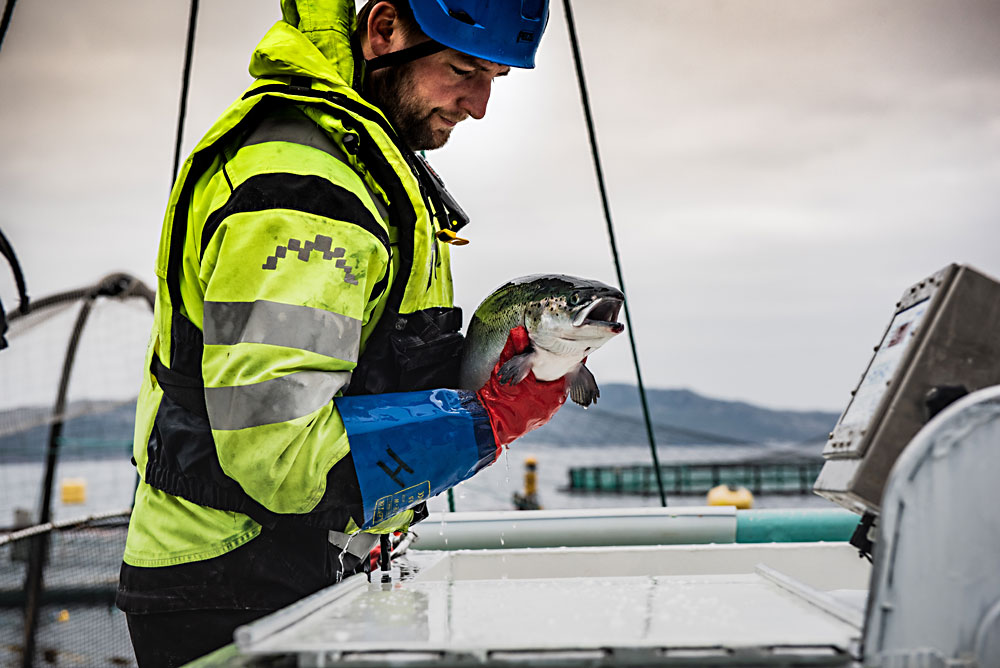Chefs, Researchers, and Activists Write the Climate Change Cookbook
Redefining what sustainable really means at SXSW
By Melanie Haupt, Fri., March 11, 2022

Understandably, with climate change serving as an acute existential threat, this year’s South by Southwest Conference includes a robust climate change track that looks at everything from fashion to travel to film and, of course, food. When examining food through the lens of climate change, multiple pain points come into relief. Beef cows fart methane into the atmosphere and require disproportionate amounts of water to produce a 1-pound steak. Overfishing and derelict nets and pots decimate ocean habitats, and commercial agriculture contributes to anthropogenic climate change through land management practices and fertilizer use. Even the leftovers we scrape into the trash and send to the landfill contribute to carbon emissions.
In September 2021, a study published in Nature Food reported that the global food production system causes more than 17 billion metric tons of greenhouse gas emissions per year, composing 35% of worldwide emissions. A handful of Conference panels tackle these pain points, with an eye toward mitigating the ill effects of the food production life cycle.
Down on the Farm: Addressing Climate Change addresses the unique position farmers are in, as major contributors to climate change in the form of land, water, and pesticide use while also being acutely affected by the phenomenon in the form of extreme weather events, soil erosion, and increased demand for food from a growing population. As water becomes more scarce and crop yields become unpredictable, these farmers and policy experts will discuss how the agriculture sector can adapt its practices to be more climate-friendly.
Climate change action isn’t just for those who work the soil, though, as demonstrated by Eating Up the Oceans: How Do We Save Our Seas? This panel includes television producer David E. Kelley, who owns and operates an aquaculture farm that raises steelhead trout, and Andrew Zimmern, celebrity chef and denizen of weird foods, who’ll be hosting a private “blue foods” dinner later in the evening. Blue foods are sustainably and ethically captured or cultivated from the ocean and inland waters, encapsulating everything from tuna to sea grapes, and serving as the foundation of 3 billion people’s daily meals. Said panelist Jennifer Bushman, cookbook author and sustainable seafood champion, “Sustainably produced blue foods can help achieve the UN Sustainable Development Goals by alleviating hunger and malnutrition; improving health; reducing pressure on oceans, water, land and climate; and maintaining or creating decent livelihoods for hundreds of millions of people worldwide.” Panelists will discuss the importance of sustainable, ethical, smart aquaculture to the food system, and attendees may very well leave with a bag of seaweed popcorn.
It’s well-established that meat consumption is an enormous contributor to climate change, and, not for the first time in the history of this Conference, multiple panels contend with the prospect of replacing meat in the American diet with everything from bugs to plant-based meat simulacra. Alternative Proteins Can Be the “Clean Energy” of Food and The Psychology Behind Mainstreaming Insect Cuisine argue that mainstreaming not-meat (including crickets and other smol proteins) as the centerpiece of the dinner plate are a slam dunk in terms of climate solutions.
In her presentation Plant-Based Meat: Green Eats or Just Junk Food? nutrition scientist P.K. Newby will walk attendees through the “farm to fork” life cycle of your favorite beef meal, as part of her argument in favor of replacing “real” burgers with plant-based ones. Indeed, food animals like cows, pigs, poultry, and more represent 57% of all food-related emissions. By comparison, plant-based foods comprise 29% of food-production emissions. “Many world dietary guidelines and many nongovernmental national and international organizations all concur that plant-based diets are an important aspect of curbing climate change,” said Newby. “This is not an opinion. This is the consensus of scientists and organizations across the world.” In order to mitigate confusion about what “plant-based” means, Newby will define what plant-based means so that folks can understand why it’s so important within the context of climate change.
For Marvin Hayes, you can’t talk about climate change without talking about environmental racism and social justice. A panelist on City Food Waste: A Burgeoning Climate Solution, Hayes is the founder and director of Baltimore Compost Collective, a community-based composting program that trains youth in small-scale composting. Kids learn how to turn their food scraps into “black gold,” supplying the nearby Filbert Street Community Garden (“the Wakanda of South Baltimore”) with compost. BCC currently serves eight neighborhoods in South Baltimore's Curtis Bay, a food desert surrounded by two incinerators, a landfill, a freeway, a chemical company, and a coal plant. “These toxic institutions are put in poor neighborhoods, but the wind doesn’t segregate,” he said. Through education and youth empowerment, Hayes aims to “starve the fires” of trash incineration through composting. “Eighty-five percent of Baltimore city trash can be composted, recycled, or reused,” he said. “You’ve gotta learn so you don’t burn.”
The food system as it operates now is beset by challenges brought on by a changing climate. Crop yields are declining as extreme weather and heat wreak havoc on growers. If we, in the form of our endless appetites, continue to place pressure on the land and sea, we will all be food insecure. These panels offer ways we as eaters and citizens can make small but effective changes to ensure that everyone has a seat at the table in the generations to come.
Green Food at SXSW
Down on the Farm: Addressing Climate Change
Friday, March 11, 10am, Courtyard by Marriott
Alternative Proteins Can Be the “Clean Energy” of Food
Tuesday, March 15, 10am, Hilton
Eating Up the Oceans: How Do We Save Our Seas?
Tuesday, March 15, 11:30am, Hilton
City Food Waste: A Burgeoning Climate Solution
Tuesday, March 15, 11:30am, Hilton
The Psychology Behind Mainstreaming Insect Cuisine
Tuesday, March 15, 11:30am, Marriott Downtown
Plant-Based Meat: Green Eats or Just Junk Food?
Thursday, March 17, 4pm, Hilton











